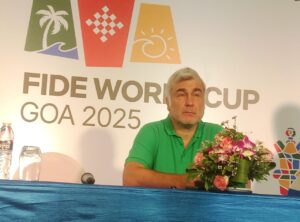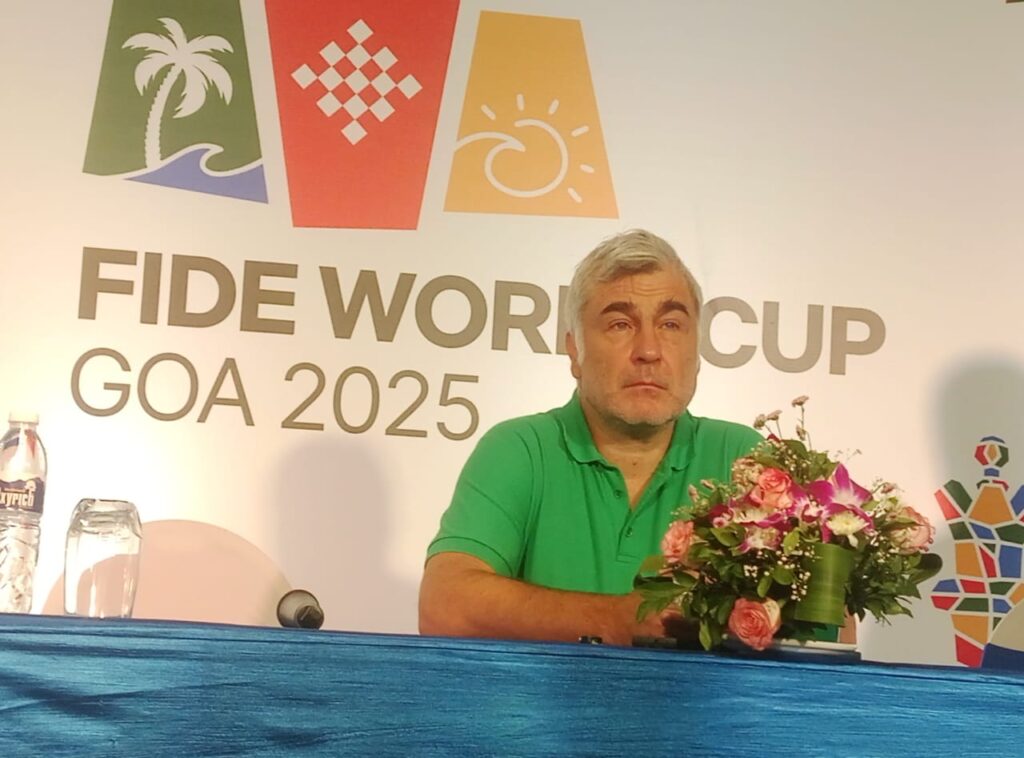
Atreyo Mukhopadhyay in Goa
Jan-Krzysztof Duda is a Polish chess player who won the FIDE World Cup in 2021. He was a part of D Gukesh’s support team during the World Championship last year. The 27-year-old recently announced he is taking time off chess to recharge psychologically.
Vasyl Ivanchuk is a former world No. 2. It’s widely regarded that the Ukrainian would have been the No. 1 had his peak not coincided with the reign of Garry Kasparov. The 56-year-old said after losing in Round 2 of the ongoing World Cup that he was emotionally drained.
Daniel Dardha is 20. The Belgian is one of the brightest young talents in the world. After the second round of the World Cup in Goa, he was downcast and lost. He had won that round. Asked why he didn’t look joyous, Dardha said the outing had been stressful.
How stressful is stress?
Although chess is not as physically challenging as other sports, there have been many instances of players complaining of fatigue and mental exhaustion. The examples cited above are just a few among many such cases. The packed schedule takes players to different corners of the world. There is pressure of expectations and also the pressure to perform according to the demands of the sponsors.
Even if it looks like there is no stress when two players match wits sitting at the opposite ends of the board, this is emotionally demanding. Not all can afford to travel with families and coaches. They are out on their own managing time differences, preparing and playing day in and day out. This has started taking its toll.
“He’s hardly at home. We celebrate Diwali or Bhai Dooj not according to the calendar, but when he’s around,” said the parents of Indian star Vidit Gujrathi. Santosh and Nikita are both doctors. Vidit is 31 and got married this year. “Now, his wife travels with him. Before that, it was mostly me who accompanied him. He feels better when we are with him. It means additional expenditure, but these are sacrifices we’ve to make,” said Nikita.
This explains why D Gukesh is seen with his father Dr Rajinikanth or R Praggnanandhaa is always with his mother Nagalakshmi. They had to do this when their children were in their early teens. One major part of their parental duties was providing emotional support because chess is becoming increasingly demanding on all fronts, not just finances. Their presence makes sure that not all the pressure has to be absorbed by these youngsters.
“They need emotional counselling because it’s exhausting,” added Santosh. “Being doctors, it’s possibly a bit easier for us to offer that. But it’s not the same for everyone. It may not seem from outside, but chess is as challenging as any other sport. There is a fear of burnout and we parents have to do as much as we can to reduce the burden on our children. It’s challenging but has to be done.”
No choice, says Ivanchuk
Ivanchuk is a veteran in the circuit. It’s expected that he will cope better with this, but he, too, is feeling the pressure of stress. “It’s impossible to just play chess and forget about everything,” he said. “It’s very important not to be tired and always to be in good shape. It’s difficult to spend time between games and very difficult to sleep, or even eat. Everything has become difficult. But I have no choice. It’s not just me facing this. So I need to try and handle it better.”
Although nobody has said this yet, Gukesh’s shock ouster from the third round is possibly due to his schedule after becoming the world champion. He has to play almost all the tournaments, in all the formats and be out of his comfort zone all the time. On top of that, he is expected to win every game. It’s difficult to be at one’s peak throughout the year after handling this. In the days to come, stress and chess are going to be talked about more often.
Follow Revsportz for latest sports news





